Posted on March 16, 2022
Updated on March 10, 2023
5 min read time
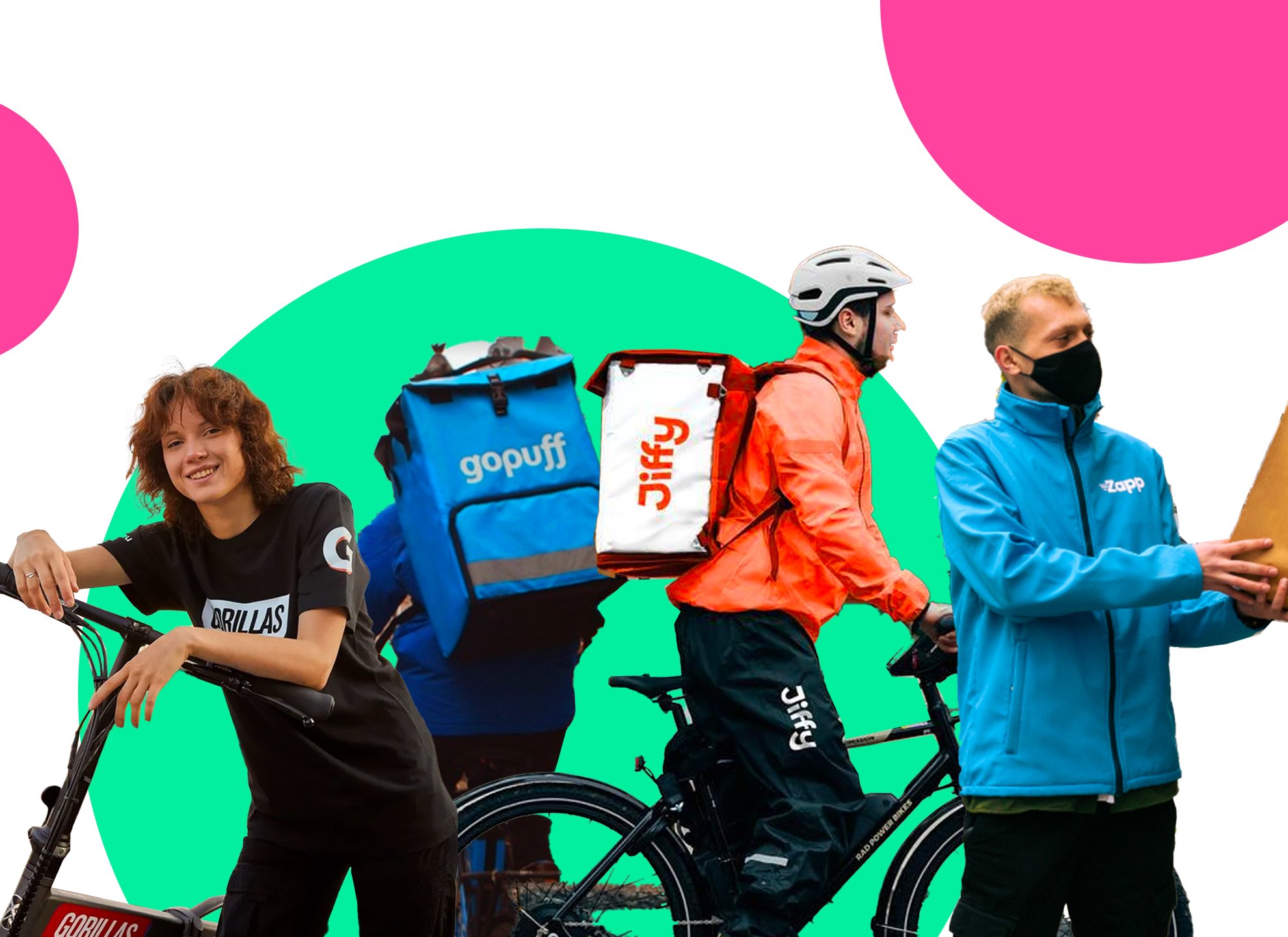
Although some rapid delivery apps existed before the COVID-19 pandemic, the spread of the virus has dramatically expanded the market.
We saw supermarket stock levels drop to an all-time low and suddenly, everyday essentials like toilet roll, soap and dried pasta were like gold dust. Those who were more vulnerable faced their own challenges, as even entering a supermarket became a huge health risk. Add on the fact that supermarket websites were becoming inundated with online traffic, making it impossible to book a delivery slot on short notice, and you can see why a solution was needed…
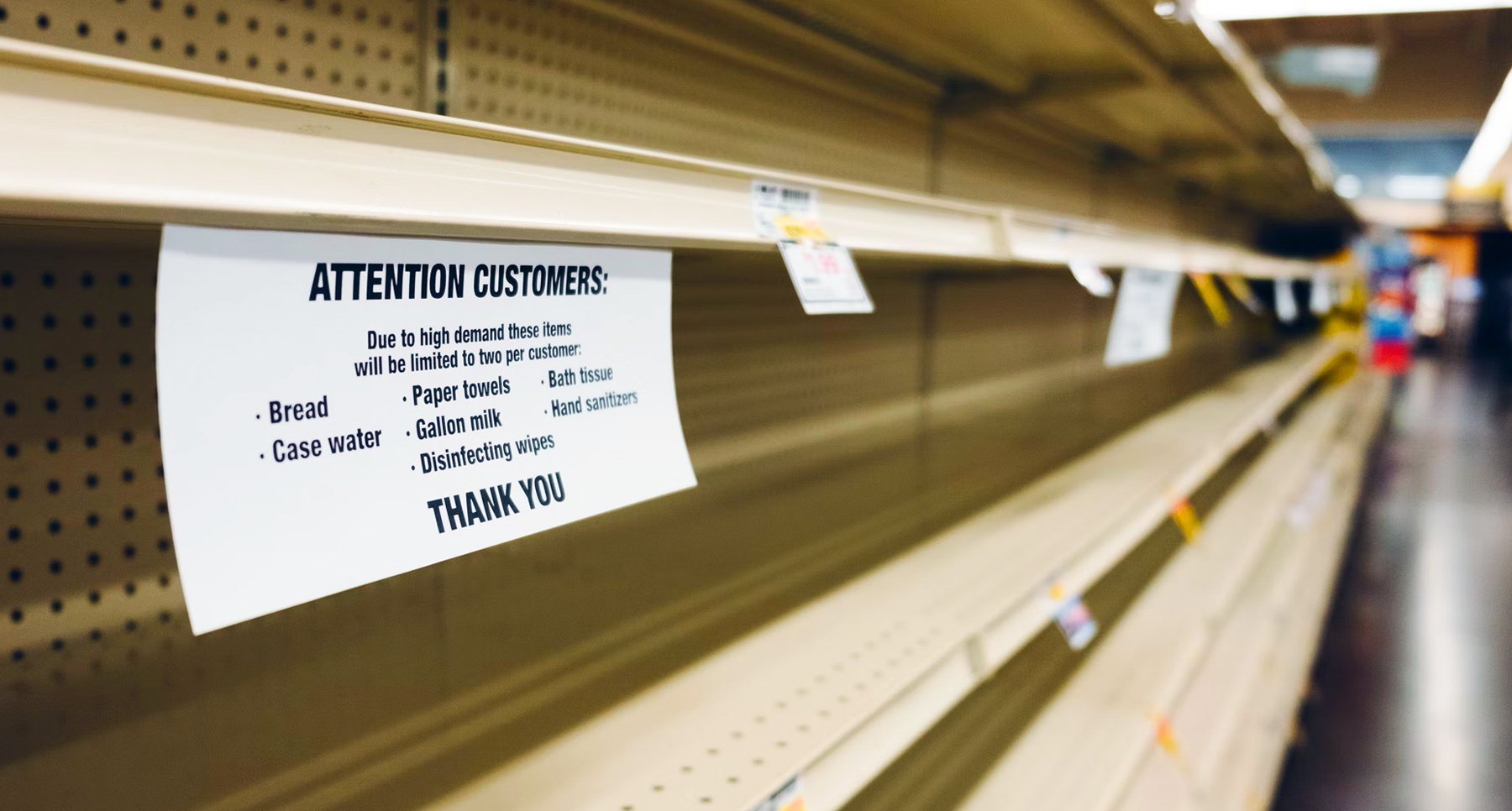
Each of these uncertainties played a role in expanding the rapid delivery app space. Apps like Zapp, Gorillas, Gopuff and Jiffy suddenly experienced a surge in popularity. By providing creative solutions to the immediate issues consumers faced, these brands were able to carve out a white space opportunity for themselves, enabling them to compete with the retail giants.
Yet, in a market as saturated as this one, it’s becoming more and more difficult to stand out.
When business models are nearly identical – with many of these brands coasting by on the ‘get your food in 15 minutes or under’ - and the range of products offered is incredibly similar, what incentivizes a consumer to buy from a Zapp over a Jiffy?
According to IGD, the Rapid Delivery or ‘quick commerce’ industry is worth £1.4bn. In the UK, this number is expected to grow to £3.3bn. On-demand delivery services like Amazon Prime and UberEats have been around for a long time, so it’s not as if we are strangers to the concept of rapid delivery and (almost) instant gratification.
Yet, apps like Gorillas seem to be taking it a step further, incentivizing consumers to shift from the larger conglomerates by giving users a timeframe guarantee that they’ll be able to deliver anything - from fresh fruit to alcohol - in an average of 15 minutes.
In addition to this, these brands are excelling at customer service, investing resources in speedy chatbots and offering discounts and money-back guarantees when orders aren’t delivered to expectations.
We are seeing some of the businesses in this market succumbing to the fierce competition. But others appear to be fuelled by it, striving to differentiate themselves and drive the aggressive expansion of the category.
In this piece, we’ll be exploring the rapid delivery app space, looking into the dynamics of the market and taking a closer look at the strategies of the biggest brand players in this fast-paced category.
To understand the strategies of the key market players, we’ll be using the 16 Driver framework. It’s been proven there are 16 different Drivers that define the relationship between a brand and its consumer. And these range from the rational - such as a brand’s Accessibility or Relevance – to the emotional, like a brand’s Popularity or Transparency.
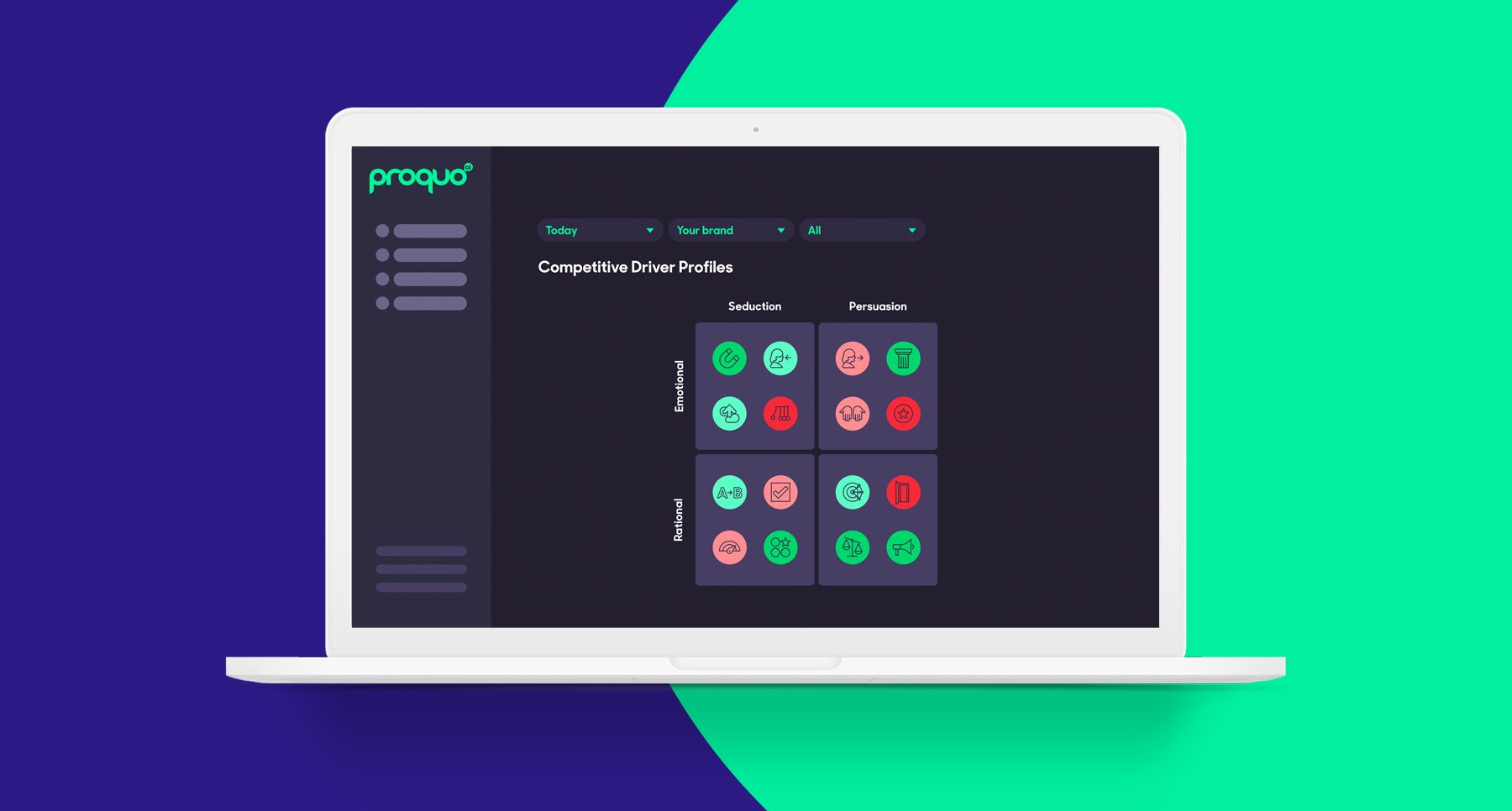
The rapid delivery category is excelling in several different areas. According to The Grocer, in February, there were 200 warehouses (or dark stores) supplying the various rapid delivery players in the UK and this number is set to grow to 1,500 by 2030. This, combined with their easy-to-use apps, means the category likely scores highly on the Accessibility Driver.
Presuming they can live up to their claims of delivering items to consumers in minutes at competitive prices, they would also be scoring high on Performance and Value for Money.
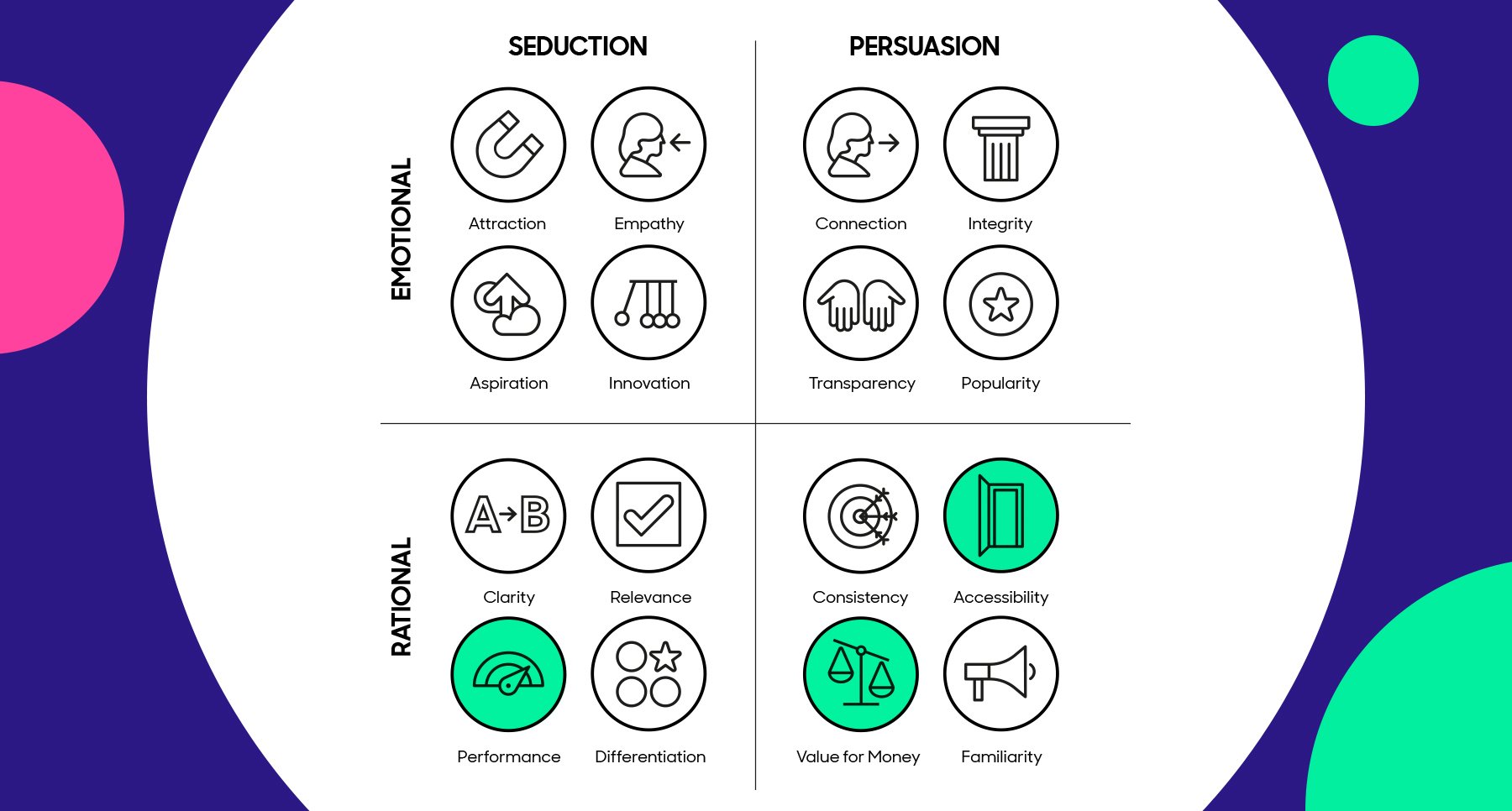
But there are several areas for disruption within the category, for example, if these providers can appeal to the values of their customers in a conscious way, they’d score better on Integrity - or if they focused more on surfacing and fulling unmet consumer needs, this would increase Empathy.
There’s also scope to focus on Relevance and Familiarity – responding to current social issues or strategically partnering with well-known brands to increase reach.
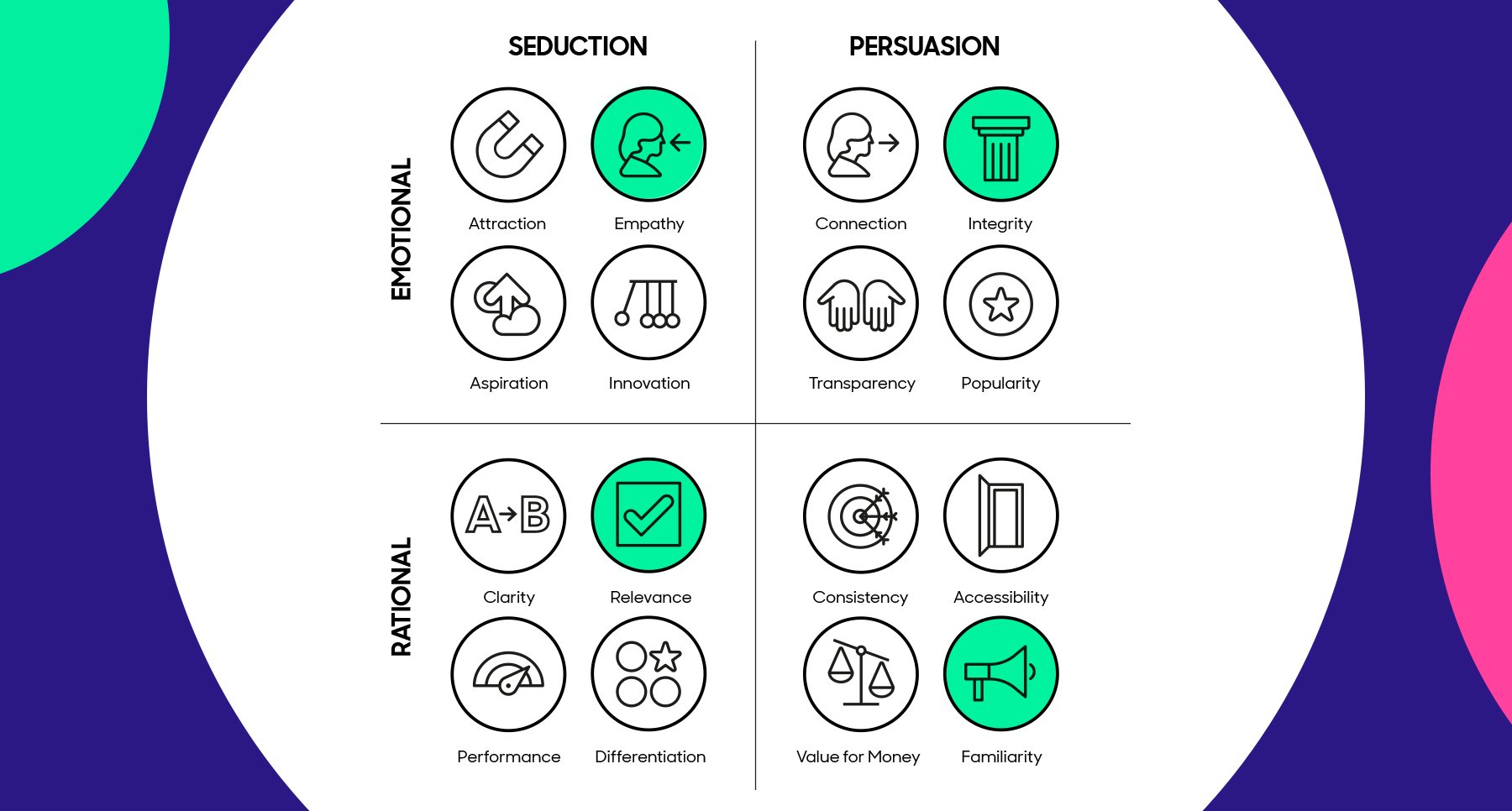
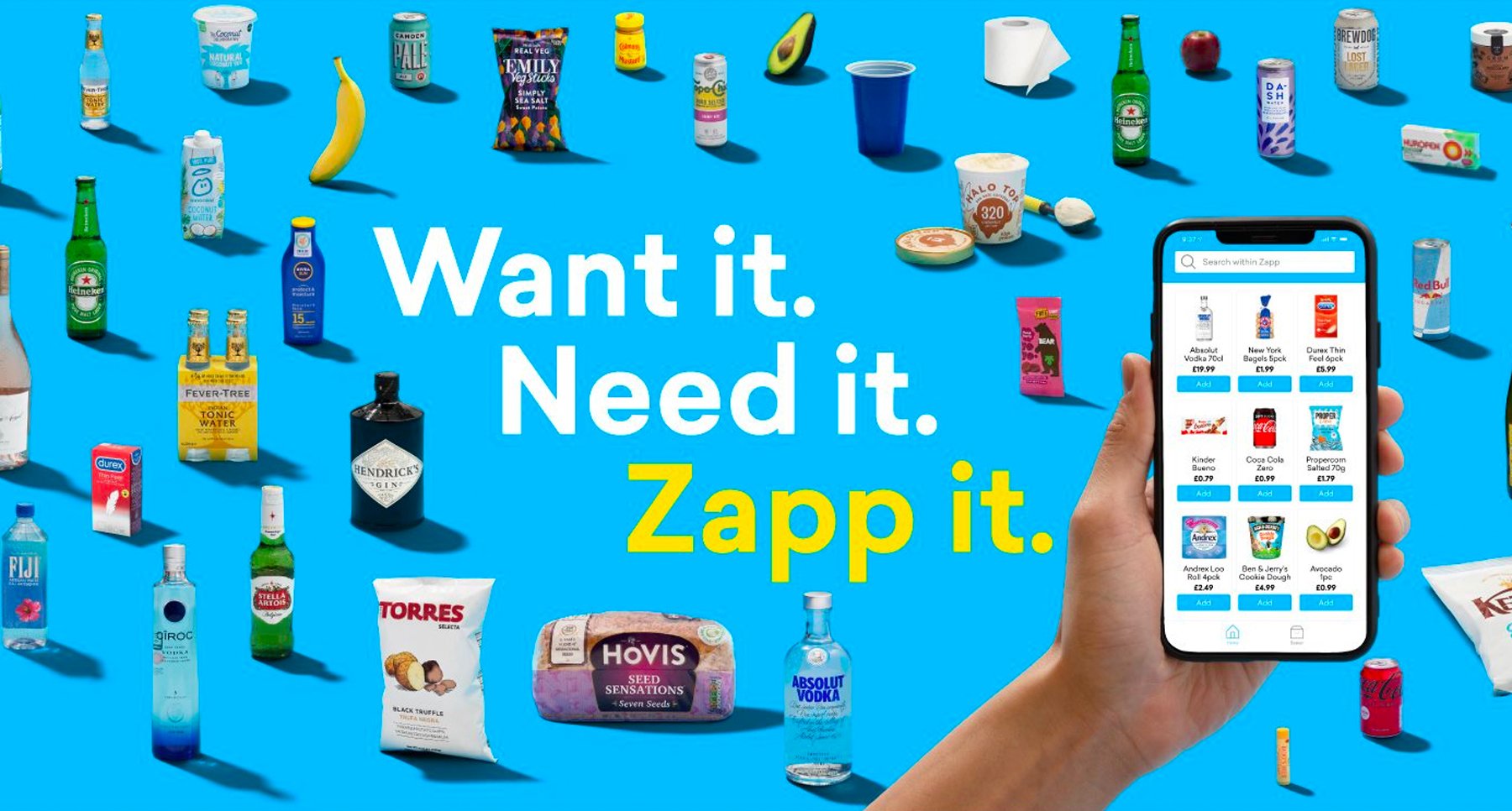
Want it. Need it. Zapp it.
In addition to catering to cities in the UK, Zapp also maintains a presence in Amsterdam, Rotterdam, and Paris. They are emphatic on their ability to deliver in minutes, 24/7, 365 days a year. And if they don’t deliver within the specified time period, they offer some form of reimbursement which keeps users coming back for more.
What makes Zapp different is their Clarity and Integrity. They always pledge to do the right thing whether it’s regarding fair employment or their impact on the environment. In current times, with the range of climate concerns, it’s important to stay Relevant and consider things like recyclable Packaging, sustainable forms of transport and carbon footprint, which is something they claim to do.
Having Partnerships with sustainable brands like Olio and Planetly supports their mission, as Zapp is actively helping to fight food waste and are managing their carbon footprint responsibly.
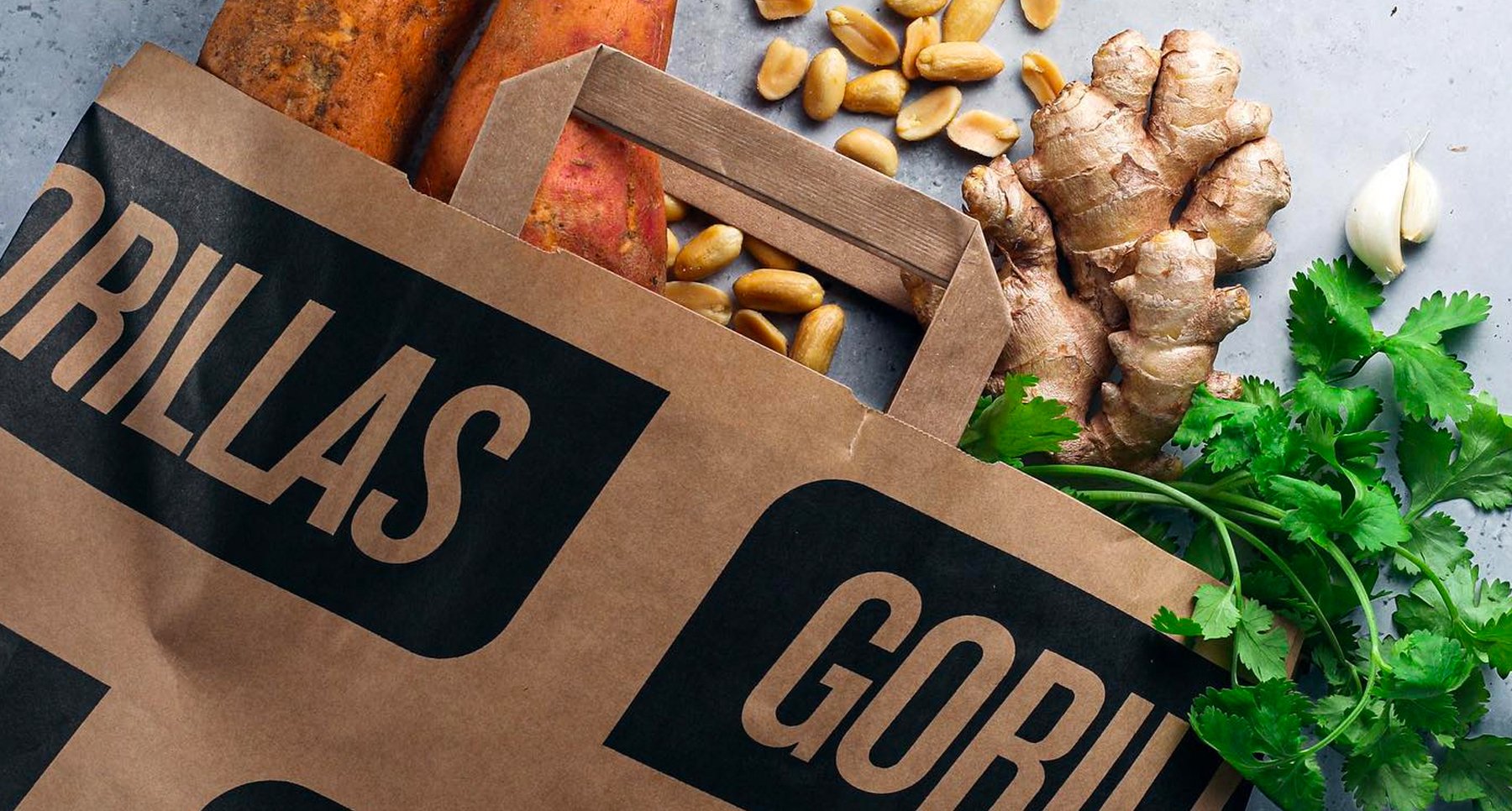
Gorillas operates in 8 different countries and aims to deliver within 10 minutes. Although they have an extensive range with thousands of products, they appear to be more focused on freshness and sourcing from local producers at retail prices: quantity AND quality.
By purchasing from local farmers, the brand guarantees fresher produce while supporting local communities (which is crucial post-lockdown). This also results in shorter supply chains, which will help Gorillas to save on cost. They recently formed a Partnership with well-established grocery retailer, Tesco, making them increasingly Familiar amongst this group of retail shoppers. This partner will also enable the brand to be more efficient with deliveries and supply, boosting Accessibility in the process.
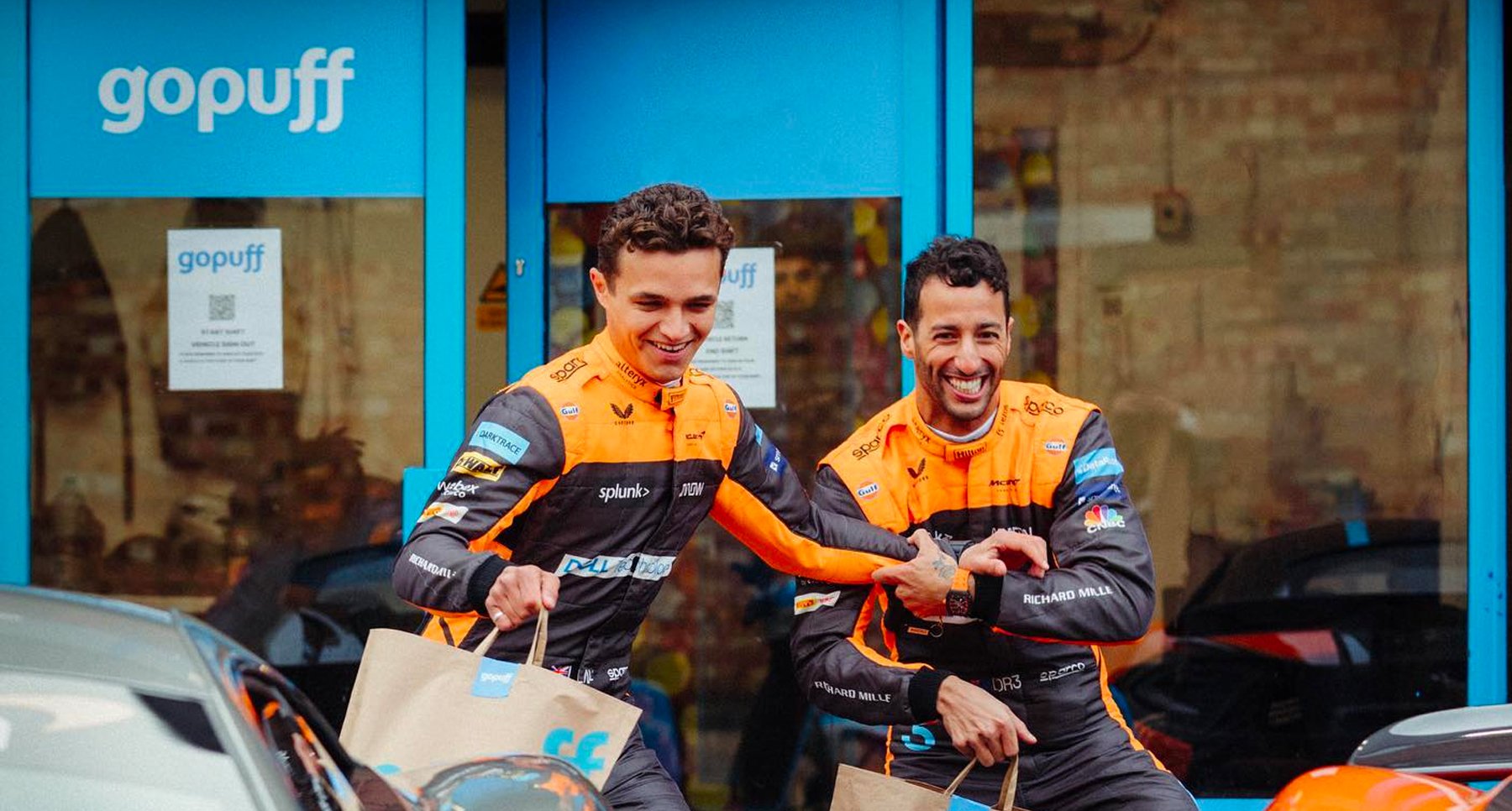
Gopuff is another good example of a company that is continuing to expand aggressively, recently acquiring one of their UK rivals, Dija. They deliver (within 15-20 minutes) to customers in over 1,000 cities in the US and Europe and claim to stock around 4,000 products in each of their locations.
The sheer size of the business makes them competitive enough in the market although they employ several other strategies to really stand out. Unlike some of their competitors, they are open 24/7 in many of their locations and late at night in others. By doing so, Gopuff perfectly anticipates and responds to a key audience need (Empathy) of wanting these products around the clock.
Consumers can also earn Puff Points with every product purchase they make, unlocking a range of redeemable offers and rewards and can also become a member of the “Gopuff Fam.” This is a subscription program which gives them access to a variety of perks, including free delivery on all orders for a small fee of £5.95 per month. This encourages people to order more frequently, building brand loyalty and growing Connection to the brand.
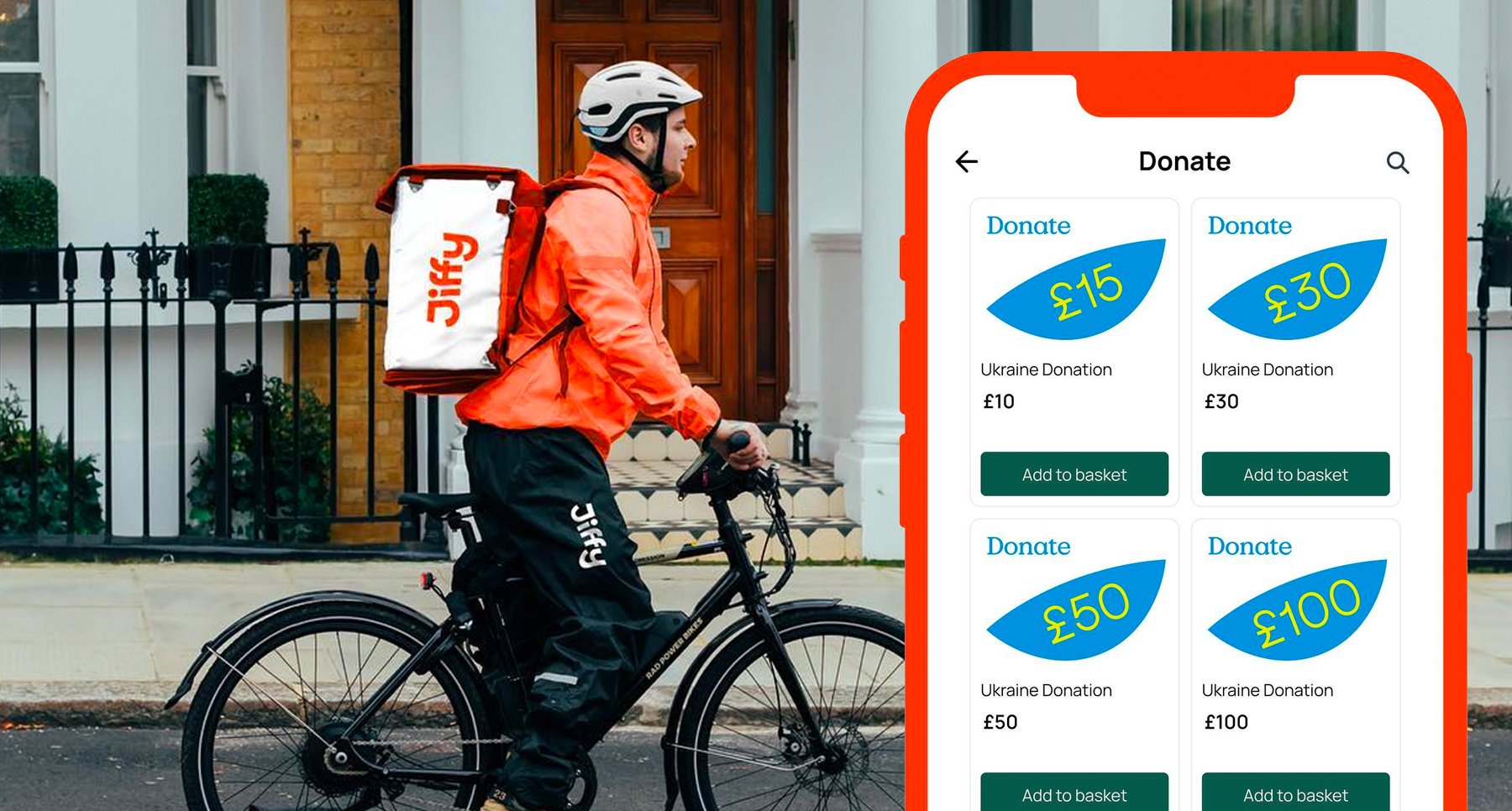
Last but not least, Jiffy. Unlike a couple of their competitors, they manage expectations from the start by showing estimated delivery times prior to shopping, which is helpful on days when there is particularly high demand. This important consideration to Customer Experience and level of Transparency saves time and builds trust with their consumers.
Currently, they are staying Relevant by using their app as a platform to draw attention to the Russia-Ukraine War with 1% of every order going to their partner, The Red Cross Foundation. It’s also possible to make a direct donation through the app. They were very reactive in this instance, acting before most of their competitors.
The brand also engages well on social media. If a consumer makes an unpacking video of their order and uploads it to their Instagram stories, they provide a £5 voucher. This is a creative way to encourage word-of-mouth advertising.
On the surface, it seems these providers have very similar offerings, from the products they provide to the time period they promise to deliver within.
But they are each working hard to show off something unique, whether it’s a subscription program, a supermarket partnership or a strong pledge to make a positive impact.
These may not be dramatic differences, but often one minor difference can be the deciding factor persuading a consumer to buy one brand over another.
If you want to learn more about differentiating your brand offering in a competitive space, click here to download our guide on standing out as a D2C brand.
Our intelligent platform will take your brand further, faster.
Don’t believe us?
© 2020-2023 ProQuo AI International
All rights reservedWebsite by Blend